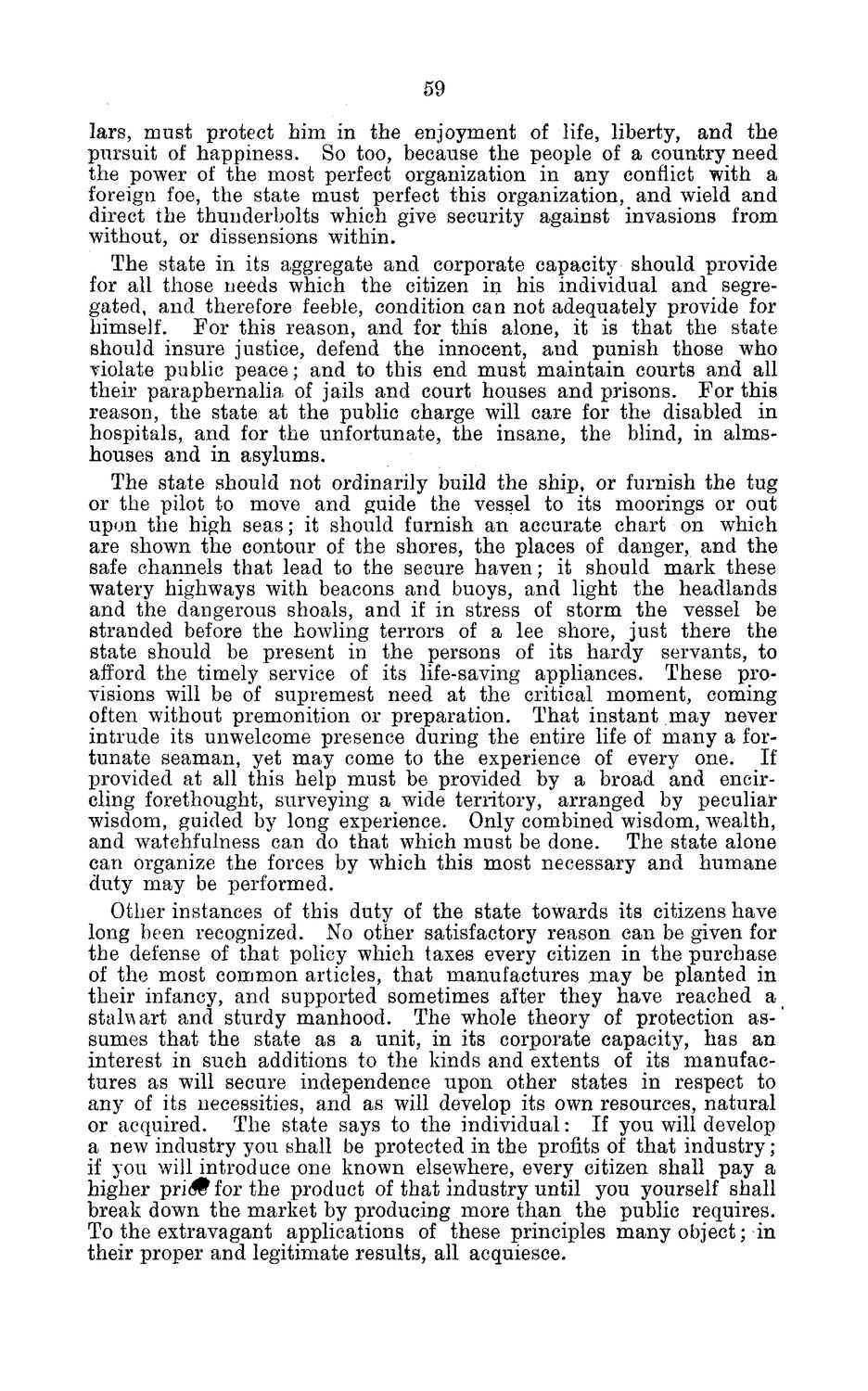| |
| |
Caption: Board of Trustees Minutes - 1884
This is a reduced-resolution page image for fast online browsing.

EXTRACTED TEXT FROM PAGE:
59 lars, must protect him in the enjoyment of life, liberty, and the pursuit of happiness. So too, because the people of a country need the power of the most perfect organization in any conflict with a foreign foe, the state must perfect this organization, and wield and direct the thunderbolts which give security against invasions from without, or dissensions within. The state in its aggregate and corporate capacity should provide for all those needs which the citizen in his individual and segregated, and therefore feeble, condition can not adequately provide for himself. For this reason, and for this alone, it is that the state should insure justice, defend the innocent, and punish those who violate public peace; and to this end must maintain courts and all their paraphernalia of jails and court houses and prisons. For this reason, the state at the public charge will care for the disabled in hospitals, and for the unfortunate, the insane, the blind, in almshouses and in asylums. The state should not ordinarily build the ship, or furnish the tug or the pilot to move and guide the vessel to its moorings or out upon the high seas; it should furnish an accurate chart on which are shown the contour of the shores, the places of danger, and the safe channels that lead to the secure haven; it should mark these watery highways with beacons and buoys, and light the headlands and the dangerous shoals, and if in stress of storm the vessel be stranded before the howling terrors of a lee shore, just there the state should be present in the persons of its hardy servants, to afford the timely service of its life-saving appliances. These provisions will be of supremest need at the critical moment, coming often without premonition or preparation. That instant may never intrude its unwelcome presence during the entire life of many a fortunate seaman, yet may come to the experience of every one. If provided at all this help must be provided by a broad and encircling forethought, surveying a wide territory, arranged by peculiar wisdom, guided by long experience. Only combined wisdom, wealth, and watchfulness can do that which must be done. The state alone can organize the forces by which this most necessary and humane duty may be performed. Other instances of this duty of the state towards its citizens have long been recognized. No other satisfactory reason can be given for the defense of that policy which taxes every citizen in the purchase of the most common articles, that manufactures may be planted in their infancy, and supported sometimes after they have reached a stalwart and sturdy manhood. The whole theory of protection as-* sumes that the state as a unit, in its corporate capacity, has an interest in such additions to the kinds and extents of its manufactures as will secure independence upon other states in respect to any of its necessities, and as will develop its own resources, natural or acquired. The state says to the individual: If you will develop a new industry you shall be protected in the profits of that industry; if you will introduce one known elsewhere, every citizen shall pay a higher pri<# for the product of that industry until you yourself shall break down the market by producing more than the public requires. To the extravagant applications of these principles many object; in their proper and legitimate results, all acquiesce.
| |